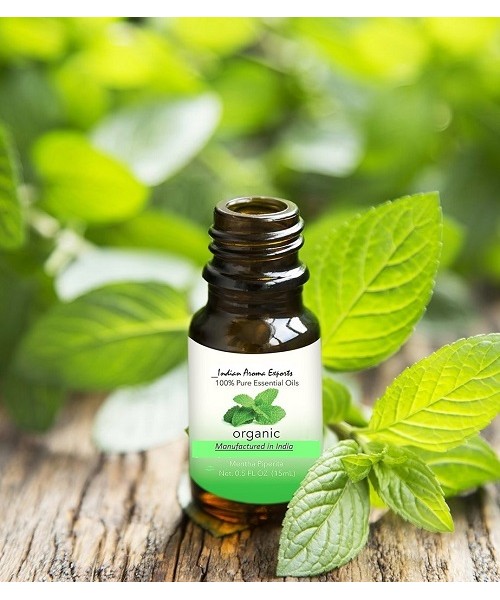Bergamot Mint Oil
- Brand: Indian Aroma Exports
- Product Code: IA-NEO-013
- Availability: In Stock
- $7.00
- Ex Tax: $7.00
 |
|
|
DESCRIPTION Also known as mentha citrate, Bergamot mint is an erect & well branched out herb that has slender and ovate or elliptical shaped leaves with small thick terminal spikes. A native to southern & central Europe, it is a perennial plant characterized for being hybrid in nature. The oil is derived from nearly ripened fruit of plant and is used in soaps, perfumes & toiletry items.I believe the variety M. aquatica is lemon mint and the Mentha Citrata here is a variety of M. piperita. The difference in the two plants is visible, as the lemon mint is very green whereas the Mentha Citrata is tinged purple. Menta Citrata is primarily used as perfume oil. In the garden it has a much stronger orange-lemon scent and the linalool acetate is formed during distillation.
COMMON NAMES
Vilayati-Pudina, Bergamot mint, Marsh mint; Water mint; Lemon mint. BLENDS WITH: Most other mints, citrus oils, geranium, basil, lavender, sage and rosemary. CONSTITUENTS linalool (50-56%) & linalyl acetate (30-35%) USES The main use of Bergamot mint oil is in perfumery and cosmetics. It also helps in enhancing weakened male sex drive & eases nervous fatigue. It also helps in acne, asthma, apathy, bowel disorders, catarrhal conditions, bronchitis, colds, congested skin, colic, coughs, digestive problems, dermatitis, dyspepsia, fatigue, faintness, etc. |
•Assists in alleviating symptoms and complications of bacterial infections – According to a study published in the April 2009 issue of the Journal of Applied Microbiology, bergamot oil can produce positive results against Enterococcus faecium and Enterococcus faecalis bacteria that are resistant to the potent antibiotic vancomycin.
These enterococcal species are a common source of a variety of infections, including urinary tract infections (UTI), bacteremia, endocarditis, and meningitis. Just add bergamot oil to your sitz bath or hip bath to help prevent the spread of bacterial infections from the urethra into the bladder.
•Acts as a substitute for statins – A newly published research in the Journal of Natural Products revealed that citrus bergamot has statin-like principles and carries the 3-hydroxy-3-methylglutaric acid (HMG) moiety.
Today, 1 in 4 Americans over age 45 now takes cholesterol-lowering drugs known as statins, typically for the primary prevention of heart attacks and strokes. If you'll ask me, not only is their benefit highly limited to those with a genetic condition, but these drugs come with an avalanche of potential side effects, too. Check out my article "Side Effects of Statins."
Keep in mind: there are far better ways to prevent heart disease than taking statins or unnecessarily lowering your cholesterol, including eating right, exercising, and maintaining healthy vitamin D levels.
•Speeds up the healing process for cold sores, mouth ulcers, and herpes – Bergamot oil has a similar antibacterial effect on shingles and chickenpox, which are also caused by the varicella zoster virus from herpes. Apply bergamot essential oil topically on affected area until condition improves.
•Helps prevent and improve skin conditions from fungal infections– In a study published in the Journal of Antimicrobial Chemotherapy, Italian researchers have proven bergamot essential oil's amazing antifungal properties when used as a topical remedy for infections brought by candida fungus strains.
•Helps reduce anxiety and stress – Experts say that when used in aromatherapy preparations, bergamot oil can help lessen stress and anxiety levels of patients prior to surgery. It also helps relieve depression. Learn how aromatherapy can resolve your anxiety issues.

